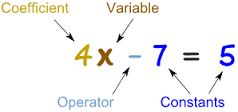记忆方法
将“coefficient”分解为“co-”和“efficient”,记忆方法是将“co-”想象为“一起”或“共同”,而“efficient”表示“有效的”或“高效的”。所以,想象这个单词表示“共同有效的因素”或“共同作用的有效系数”。
以上内容由AI生成, 仅供参考和借鉴
中文词源
coefficient 系数的
co-, 强调。efficient, 生效的。
英语词源
- coefficient (n.)
- also co-efficient, c. 1600, from co- + efficient. Probably influenced by Modern Latin coefficiens, which was used in mathematics in 16c., introduced by French mathematician François Viète (1540-1603). As an adjective from 1660s.
权威例句
- 1. the coefficient of friction
- 摩擦系数
- 2. A coefficient of one means the markets move perfectly in step.
- 系数为1表示各个市场的步调完全一致。
- 3. The distribution coefficient equation is still valid for any value of n.
- 对任一级n,分配系数关系式仍然是成立的.
- 4. The value of the sticking coefficient may have to be revised.
- 附着系数的值可能应有所修正.
- 5. A compliance coefficient is a particular kind of flexibility - influence coefficient.
- 柔度系数是挠曲影响系数的一种特殊类型.
